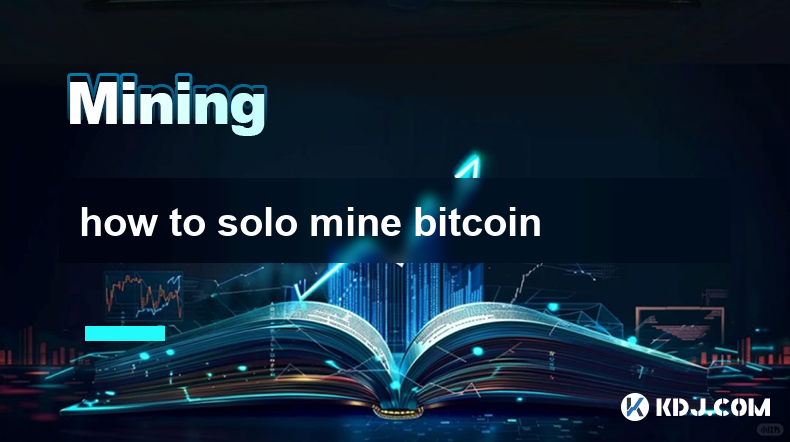-
 Bitcoin
Bitcoin $84,995.1477
-0.20% -
 Ethereum
Ethereum $1,585.4759
-2.04% -
 Tether USDt
Tether USDt $0.9999
0.02% -
 XRP
XRP $2.0730
-0.71% -
 BNB
BNB $591.7840
-0.21% -
 Solana
Solana $137.3558
-1.54% -
 USDC
USDC $1.0000
0.01% -
 TRON
TRON $0.2452
0.77% -
 Dogecoin
Dogecoin $0.1551
-1.71% -
 Cardano
Cardano $0.6207
-1.60% -
 Chainlink
Chainlink $13.3328
2.51% -
 UNUS SED LEO
UNUS SED LEO $9.3257
0.18% -
 Avalanche
Avalanche $19.4452
-2.96% -
 Toncoin
Toncoin $3.0029
0.84% -
 Stellar
Stellar $0.2436
-1.45% -
 Shiba Inu
Shiba Inu $0.0...01236
-0.13% -
 Hedera
Hedera $0.1661
-0.74% -
 Sui
Sui $2.1065
-2.78% -
 Bitcoin Cash
Bitcoin Cash $336.5946
0.33% -
 Polkadot
Polkadot $3.8951
0.21% -
 Litecoin
Litecoin $78.0811
2.15% -
 Hyperliquid
Hyperliquid $17.4185
-3.11% -
 Dai
Dai $0.9999
0.00% -
 Bitget Token
Bitget Token $4.4045
-3.02% -
 Ethena USDe
Ethena USDe $0.9993
0.01% -
 Pi
Pi $0.6401
-1.12% -
 Monero
Monero $214.7497
0.27% -
 Uniswap
Uniswap $5.2388
-1.93% -
 Pepe
Pepe $0.0...07536
-0.04% -
 Aptos
Aptos $5.0490
2.59%
how to solo mine bitcoin
Solo Bitcoin mining, while offering 100% block rewards, demands substantial hardware investment and faces astronomically low odds of success due to the network's immense hash rate, making profitability highly unlikely for most.
Mar 24, 2025 at 09:29 pm

How to Solo Mine Bitcoin: A Deep Dive into the Challenges and Possibilities
Solo Bitcoin mining, the act of mining Bitcoin independently without joining a pool, is a challenging but potentially rewarding endeavor. It offers the allure of claiming 100% of the block reward, but the odds are significantly stacked against solo miners. This article explores the intricacies of solo Bitcoin mining, addressing the complexities and providing a detailed understanding of the process.
Understanding the Basics of Bitcoin Mining
Bitcoin mining involves solving complex cryptographic puzzles using specialized hardware. The first miner to solve the puzzle adds a new block to the blockchain and receives the block reward, currently 6.25 BTC. The difficulty of these puzzles adjusts dynamically to maintain a consistent block generation time of approximately 10 minutes. This difficulty makes solo mining exponentially harder over time.
The Hardware Requirements for Solo Mining Bitcoin
Solo Bitcoin mining necessitates substantial investment in specialized hardware, specifically ASICs (Application-Specific Integrated Circuits). These are purpose-built chips designed for maximum hash rate, the measure of computational power. The more hash rate your hardware possesses, the better your chances, however slim. You'll also need a powerful computer to manage the mining operation, reliable internet connection, and sufficient cooling systems for your ASICs. The initial capital outlay can be substantial.
Software Requirements and Setup
Several mining software options are available, each with its own advantages and disadvantages. Popular choices include CGMiner, BFGMiner, and Antminer. Choosing the right software often depends on your specific hardware. The setup process typically involves configuring the software to connect to the Bitcoin network, specifying your mining pool (even for solo mining, you need to point to a solo mining pool, as explained later), and setting up your wallet address to receive the rewards.
Choosing a Mining Pool (Even for Solo Mining)
Paradoxically, even solo miners often utilize a solo mining pool. These pools don't split the rewards; instead, they provide a platform to track your hash rate and calculate your probability of finding a block. This allows you to accurately assess your mining performance without the need for complex individual calculations. Examples include Slush Pool and 2Miners, offering solo mining options.
The Economics of Solo Bitcoin Mining
The economics are brutally unforgiving. The probability of a solo miner finding a block depends on their hash rate relative to the total network hash rate. With millions of miners contributing, the odds are astronomically low. The cost of electricity, hardware depreciation, and the potential for long periods without rewards must be carefully considered. You need to factor in the potential ROI (Return on Investment).
Step-by-Step Guide to Setting Up a Solo Bitcoin Mining Operation
- Acquire ASIC Miners: Purchase high-hashrate ASIC miners from reputable vendors.
- Set Up Mining Hardware: Connect your ASICs to your computer and ensure proper cooling.
- Choose and Install Mining Software: Select suitable mining software and configure it according to the instructions.
- Configure Your Wallet: Create a Bitcoin wallet and ensure it's securely stored. Provide the wallet address to your mining software.
- Join a Solo Mining Pool: Register with a solo mining pool and provide your worker details.
- Monitor Your Mining Operation: Continuously monitor your hash rate, pool statistics, and block generation probability.
Addressing Potential Challenges
- High Initial Investment: Solo mining requires a substantial upfront investment in hardware and electricity.
- Low Probability of Success: The chance of finding a block solo is exceptionally low, leading to potential losses.
- Electricity Costs: Electricity consumption is significant, potentially outweighing any potential profit.
- Technical Expertise: A degree of technical knowledge is required for hardware setup, software configuration, and troubleshooting.
- Hardware Obsolescence: ASIC miners become obsolete relatively quickly due to technological advancements.
Frequently Asked Questions
Q: Is solo Bitcoin mining profitable?
A: Solo Bitcoin mining is rarely profitable for the average individual due to the extremely low probability of finding a block and the high operational costs. Only those with exceptionally large-scale operations and very low electricity costs might see a profit.
Q: What is the best ASIC miner for solo Bitcoin mining?
A: There isn't a single "best" miner. The ideal choice depends on your budget and the available models at the time. Look for miners with the highest hash rate per watt to minimize electricity costs.
Q: How long does it take to mine one Bitcoin solo?
A: The time required to mine one Bitcoin solo is unpredictable and depends entirely on your hash rate and the network difficulty. It could take days, months, or even years, or never.
Q: Can I mine Bitcoin on my home computer?
A: You can, but it's extremely inefficient and unlikely to yield any profit. ASIC miners are specifically designed for Bitcoin mining and far outperform CPUs and GPUs.
Q: What are the risks associated with solo Bitcoin mining?
A: The primary risks include the high financial investment with a low return potential, the cost of electricity, and the possibility of hardware failure.
Q: What are the alternatives to solo Bitcoin mining?
A: Joining a mining pool is a much more practical and common approach. Pools distribute the block rewards proportionally based on each miner's contribution.
Q: How can I improve my chances of solo mining success?
A: The only way to significantly improve your chances is to increase your hash rate by acquiring more powerful and efficient ASIC miners. Even then, success is not guaranteed.
Disclaimer:info@kdj.com
The information provided is not trading advice. kdj.com does not assume any responsibility for any investments made based on the information provided in this article. Cryptocurrencies are highly volatile and it is highly recommended that you invest with caution after thorough research!
If you believe that the content used on this website infringes your copyright, please contact us immediately (info@kdj.com) and we will delete it promptly.
- Missed EOS's Early Surge? Qubetics Is Making Waves Among Top Altcoins for Massive Return Potential
- 2025-04-21 06:35:13
- Cardano (ADA) Price Prediction: Bulls Cluster Around $0.60 Support as Charles Hoskinson Hints at Strained Trump Relationship
- 2025-04-21 06:35:13
- Arctic.P.O.C. Coin Is Your 2025 Rocket to the Moon—Secure Your Spot Before It Explodes
- 2025-04-21 06:30:13
- Pi Coin Gains Steam as Whales Accumulate – What's Next?
- 2025-04-21 06:30:13
- Today, most of Heidizaini’s time is spent on his metal detector business, and maintaining a network of agents in different states who direct purchase requests to him.
- 2025-04-21 06:25:13
- Bitcoin Cash Recovers 10%, AVAX Finds Support—BlockDAG's 600% Bonus & Early Access Draw Heavy Interest
- 2025-04-21 06:25:13
Related knowledge

How to judge the stability and reliability of the mining pool?
Apr 19,2025 at 02:08pm
When engaging in cryptocurrency mining, choosing the right mining pool is crucial for maximizing your returns and ensuring a stable mining experience. The stability and reliability of a mining pool can significantly impact your overall success in mining. Here, we will explore the key factors to consider when evaluating the stability and reliability of a...

How to deal with abnormal noise during mining machine operation?
Apr 17,2025 at 01:35am
Mining machines are essential tools for cryptocurrency miners, but they can sometimes produce abnormal noises that may indicate underlying issues. Understanding how to identify and address these noises is crucial for maintaining the efficiency and longevity of your mining equipment. This article will guide you through the process of dealing with abnorma...

How to maintain anonymity when mining?
Apr 17,2025 at 06:01pm
Maintaining anonymity when mining cryptocurrencies is crucial for many miners who wish to protect their privacy and security. This article will guide you through various strategies and tools that can help you achieve a high level of anonymity while engaging in mining activities. Understanding the Importance of Anonymity in MiningAnonymity in the context...

How to automate mining tasks through scripts?
Apr 18,2025 at 01:29pm
In the world of cryptocurrency, mining remains a crucial activity for generating new coins and securing blockchain networks. Automating mining tasks through scripts can significantly enhance efficiency and reduce manual labor. This article delves into the intricacies of automating mining tasks, providing a comprehensive guide on how to achieve this usin...

How to switch mining algorithms in the mining pool?
Apr 18,2025 at 12:00pm
Switching mining algorithms in a mining pool can be a strategic move for miners looking to optimize their mining operations. This process involves several steps and considerations, and understanding how to navigate it can significantly impact a miner's efficiency and profitability. In this article, we will explore the detailed steps required to switch m...

How to avoid reduced income due to network delays when mining?
Apr 19,2025 at 12:14am
Mining cryptocurrencies can be a lucrative endeavor, but it comes with its own set of challenges, one of which is network delays. These delays can significantly impact your mining income by causing you to miss out on block rewards and transaction fees. In this article, we will explore various strategies to mitigate the effects of network delays and ensu...

How to judge the stability and reliability of the mining pool?
Apr 19,2025 at 02:08pm
When engaging in cryptocurrency mining, choosing the right mining pool is crucial for maximizing your returns and ensuring a stable mining experience. The stability and reliability of a mining pool can significantly impact your overall success in mining. Here, we will explore the key factors to consider when evaluating the stability and reliability of a...

How to deal with abnormal noise during mining machine operation?
Apr 17,2025 at 01:35am
Mining machines are essential tools for cryptocurrency miners, but they can sometimes produce abnormal noises that may indicate underlying issues. Understanding how to identify and address these noises is crucial for maintaining the efficiency and longevity of your mining equipment. This article will guide you through the process of dealing with abnorma...

How to maintain anonymity when mining?
Apr 17,2025 at 06:01pm
Maintaining anonymity when mining cryptocurrencies is crucial for many miners who wish to protect their privacy and security. This article will guide you through various strategies and tools that can help you achieve a high level of anonymity while engaging in mining activities. Understanding the Importance of Anonymity in MiningAnonymity in the context...

How to automate mining tasks through scripts?
Apr 18,2025 at 01:29pm
In the world of cryptocurrency, mining remains a crucial activity for generating new coins and securing blockchain networks. Automating mining tasks through scripts can significantly enhance efficiency and reduce manual labor. This article delves into the intricacies of automating mining tasks, providing a comprehensive guide on how to achieve this usin...

How to switch mining algorithms in the mining pool?
Apr 18,2025 at 12:00pm
Switching mining algorithms in a mining pool can be a strategic move for miners looking to optimize their mining operations. This process involves several steps and considerations, and understanding how to navigate it can significantly impact a miner's efficiency and profitability. In this article, we will explore the detailed steps required to switch m...

How to avoid reduced income due to network delays when mining?
Apr 19,2025 at 12:14am
Mining cryptocurrencies can be a lucrative endeavor, but it comes with its own set of challenges, one of which is network delays. These delays can significantly impact your mining income by causing you to miss out on block rewards and transaction fees. In this article, we will explore various strategies to mitigate the effects of network delays and ensu...
See all articles





















































































